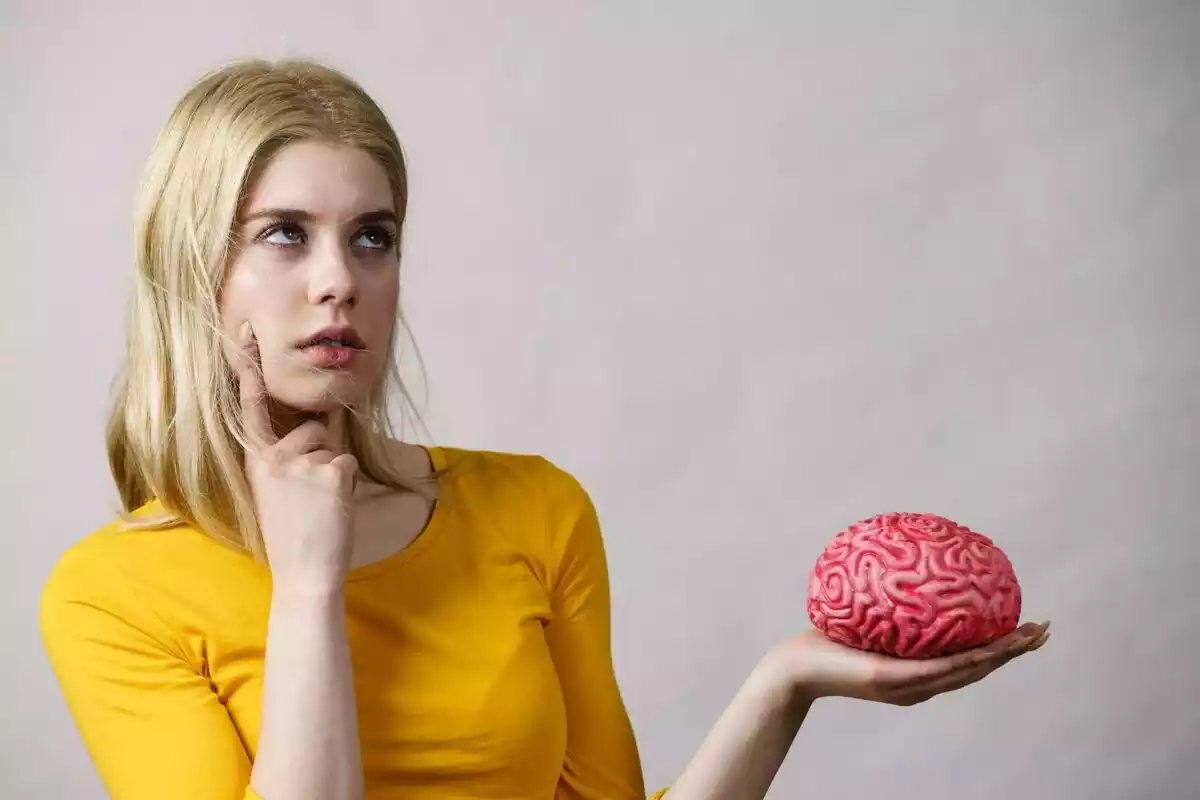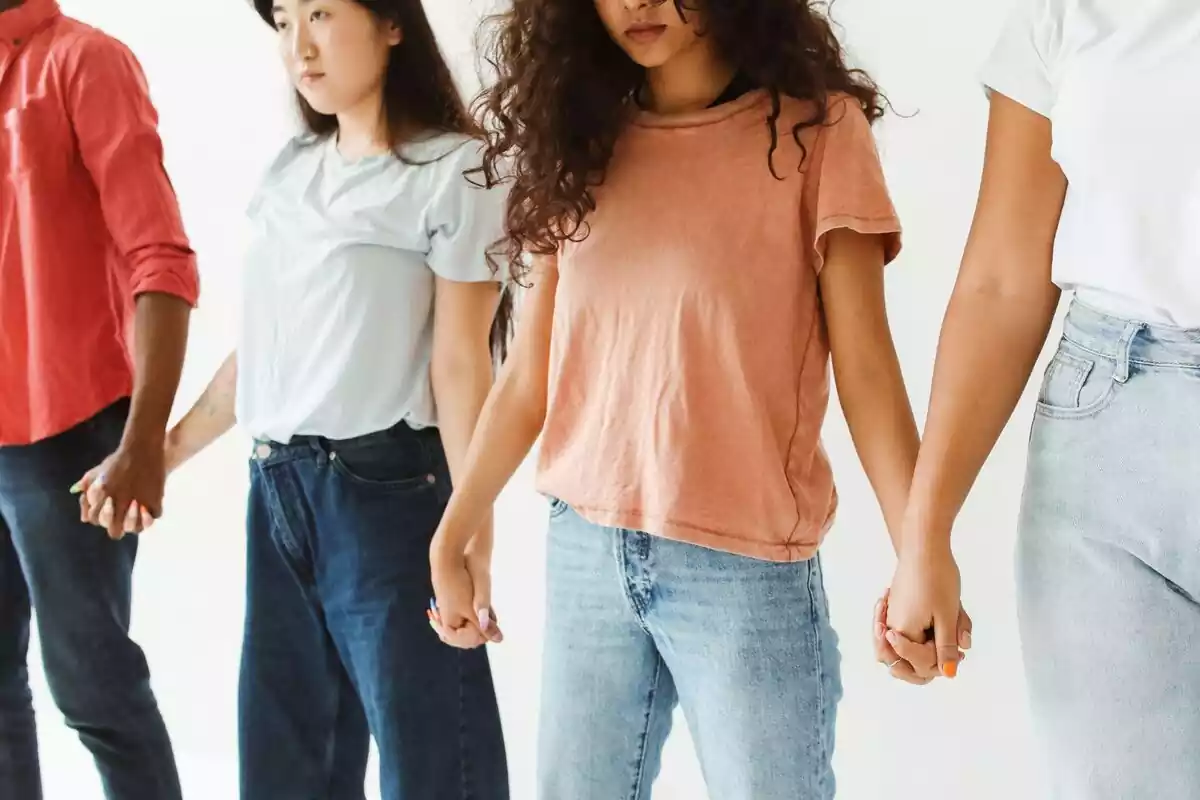
In a time where individuals in some places on Earth are walking all over human rights and getting away with it, it's important to remember that governments and authorities all over the world make their citizens certain guarantees that they are obligated to keep to ensure their well-being. These liberties are the ones stated in the 1948 Universal Declaration of Human Rights.
But, do you know exactly which inalienable rights all human beings have? Below we list all 30 freedoms present on the UN's Universal Declaration of Human Rights.
What do all Universal Declaration of Human Rights articles share?
To start, human rights are universal; this means that any member of the human race has these, no matter how good or bad they may be. Besides, they're innate; in other words, we have them from the time we come into this world. These are their basic features, but there are also others:
They must be met
According to the Universal Declaration of Universal Rights, every state has to guarantee and protect said rights. If they fail to do so, citizens can force their government to take the responsibility that political leaders have to the people of their nation.
All or none
It's worth mentioning that human rights are interconnected. Depriving or neglecting one provokes a chain reaction that derails others as well.
All lives are of equal value
Due to their innate and shared nature among all human beings, everyone is considered equal upon birth.
Unwavering
Last, but not least: Human Rights are unshakable. Putting one of these basic guarantees at risk would be to attack our human condition at its very core. Likewise, you cannot exchange or relinquish any of these.
What is an inalienable right?
'Rights' are those precepts that are common to all people and that appeal to concepts such as 'justice' or 'order,' which give it meaning. The fundamental goal of rights is to manage human relationships in any society so that there are balance and justice. To do this, governments need to apply themselves and handle these matters.
As far as Human Rights, these are liberties that all people on this planet share, regardless of factors such as race, sex, nationality, language, or religion.
The Universal Declaration of Human Rights
These are the liberties, listed in the Universal Declaration of Human Rights are something that no one can ever take away from you since they would be robbing you of your human condition. All of these are summed up in the UDHR that obliges all countries to respect and protect these:
1. Dignity and equal rights from birth
Human dignity is an inseparable condition, together with equality as far as these universal rights.
2. Everyone is entitled to human rights, without distinction
No one is exempt from exercising the rights and liberties that they're due. No person should ever be discriminated against because of their race, skin color, sex, religion, language, origin, political ideology, or socioeconomic status.
3. Life, liberty, and security
The right to life becomes inalienable upon birth, as well as this person's right to freedom and security.
4. Slavery is prohibited
A human being cannot be enslaved nor forced into servitude. Slavery in any form is forbidden.
5. A human being cannot be tortured or degraded
Physical punishment is prohibited, along with humiliating or degrading treatment.
6. Recognition of legal personality
All human beings have the right, in any part of the world, to the recognition of their legal personality.
7. All human beings are equal before the law
No differentiations are allowed before the law. A human being has the right not to be discriminated against and to protect themselves if they choose.
8. Right to an effective remedy by the tribunals
Anyone can receive protection from tribunals and the law in the case of actions or measures that violated any of their rights.
Everyone has the right to an effective remedy by the competent national tribunals, that will protect them against the actions that violated their fundamental rights recognized by their country's constitution or by law.
9. Right to not be detained without probable cause
As stated in the Universal Declaration of Human Rights, there must be a motive to arrest an individual; this cannot occur at random; this holds true for imprisonment and exile as well.
10. Right to an independent hearing
When one must defend their rights and obligations before a tribunal, fair conditions must be assured so that the person can have a hearing before an impartial tribunal and judge.
11. Assumption of innocence
The right to be assumed innocent until the accused is proven guilty in a public trial is guaranteed, always safeguarding their defense.
No one can ever be condemned for their actions or failures if they were not considered criminal acts at the time that they were committed; nor can a worse sentence be given than what would have been applied at the time the crime was committed.
12. Right to privacy
A person can keep their identity, private life and that of their family, address, or correspondance hidden. Besides, they have the right to protection by law in the case that one of these is violated.
13. Freedom of movement and residence
The right to freedom of movement throughout one's national territory and to establish a home in any part of the same State is assured. Leaving the country is taken into account in any case, as well as one's return.
14. Right to seek asylum
All human beings can seek asylum and obtain it in the case of persecution. This is not guaranteed if an individual has been found guilty of committing crimes unrelated to politics.
15. Right to nationality
In line with the Universal Declaration of Human Rights, everyone has the right to nationality and the desire to change one's nationality or seek double nationality cannot be denied.
16. Right to marriage
At the proper age, both men and women have the right to seek marriage, without restriction due to race, nationality, or religion.
A marriage is considered valid if both parties involved consent without pressure and give their free consent. Whatever the case may be, the spouses and the resulting family will be sheltered by the state.
17. Right to own property
Every human has the right to own individual and collective property, something that they cannot be denied without a cause or at random.
18. Freedom of thought, conscience and religion
These three freedoms were conceived by the UDHR with the idea of changing religion or beliefs in mind; in addition to the freedom to profess one's religious faith individually or collectively, in public or private.

19. Freedom of opinion and expression
This guarantees the right to free expression and not to be bothered by personal opinions or thoughts. Besides, one can share their thoughts via any means of communication.
20. Right to freedom of assembly and association
As long as it's peaceful, people have the liberty to assemble and associate; although joining an association is not obligatory.
21. Right to choose the country's government
Anyone can participate in their country's elections, selecting the representative that they like or by participating directly in the political race.
Equal access to public office in one's country is also guaranteed as stated in the Universal Declaration of Human Rights.
Elections are an expression of the people's will regarding authority, and this should take place periodically through universal, equal suffrage, with secret votes, and without restrictions.
22. Right to proper social security
Those who enjoy the privilege of living in society have the right to benefit from an excellent social security system, that should be sustained thanks to the public expenses of citizens, depending on their financial capacity and based on principles of equality and progressiveness. In no case, can this expense be confiscated.
23. Right to work
The right to work is a liberty, as well as the ability to choose it. In any case, access to jobs should be equal and protect those that find themselves unemployed.
Working comes with the right to receive a salary in exchange, without discrimination against the worker.
24. Right to rest
In addition to the right to work, the UDHR says that people have the ability to enjoy time off and periodic planned vacations are also contemplated.

25. Right to a standard of living that assures personal well-being
All human beings have the right to a standard of living that allows this individual and their family to enjoy good health and well-being. How? Guaranteeing to meet the basic requirements, like clothing, adequate housing, proper medical care, and excellent social services.
On the same note, those that are unemployed or ill are assured the same coverage; as is the case of those with disabilities, widows, the elderly, and others.
Children, whether born from a marriage or not, need to be protected by social security.
26. Right to education
Education is a right in accordance with the UDHR. Primary education must be free and compulsory. Vocational training should be for everyone, as well as access to higher education; always per one's merits.
The goal of education is personal development to strengthen respect for human rights regarding one's self and others, as well as inalienable rights and to ensure tolerance and friendship among nations, ethnic and religious groups to keep the peace.
Parents have the right to chose the education they want for their children.
27. Participation in culture
The ability to take part in cultural activities that the community offers is another freedom that everyone has the right to form a part of (enjoying the arts and scientific progress). On the same note, scientists, authors, and artists will be protected.
28. Right to patent these rights
It doesn't make sense to promise so many rights if later they aren't materialized. A social and international order needs to be established that allows all of these prerogatives contemplated in the Universal Declaration of Human Rights to be made effective.
29. Duties
Not everything can be a privilege. Belonging to a community also means meeting certain obligations, although without having to give up liberty and personality. However, these two aspects will be limited by law, that will act as a safeguard for the rights and freedoms of everyone else.
Rights and freedoms that go against the goals of the United Nations shall not be exercised.
30. No free interpretation
None of the principles contemplated in the UDHR can be freely interpreted or misrepresented at will.
References
Human rights and health. (2017, December 29). Retrieved January 10, 2019, from https://www.who.int/news-room/fact-sheets/detail/human-rights-and-health
Universal Declaration of Human Rights. (n.d.). Retrieved January 10, 2019, from https://www.amnesty.org/en/what-we-do/universal-declaration-of-human-rights/
Universal Declaration of Human Rights. (n.d.). Retrieved January 10, 2019, from http://www.un.org/en/universal-declaration-human-rights/
